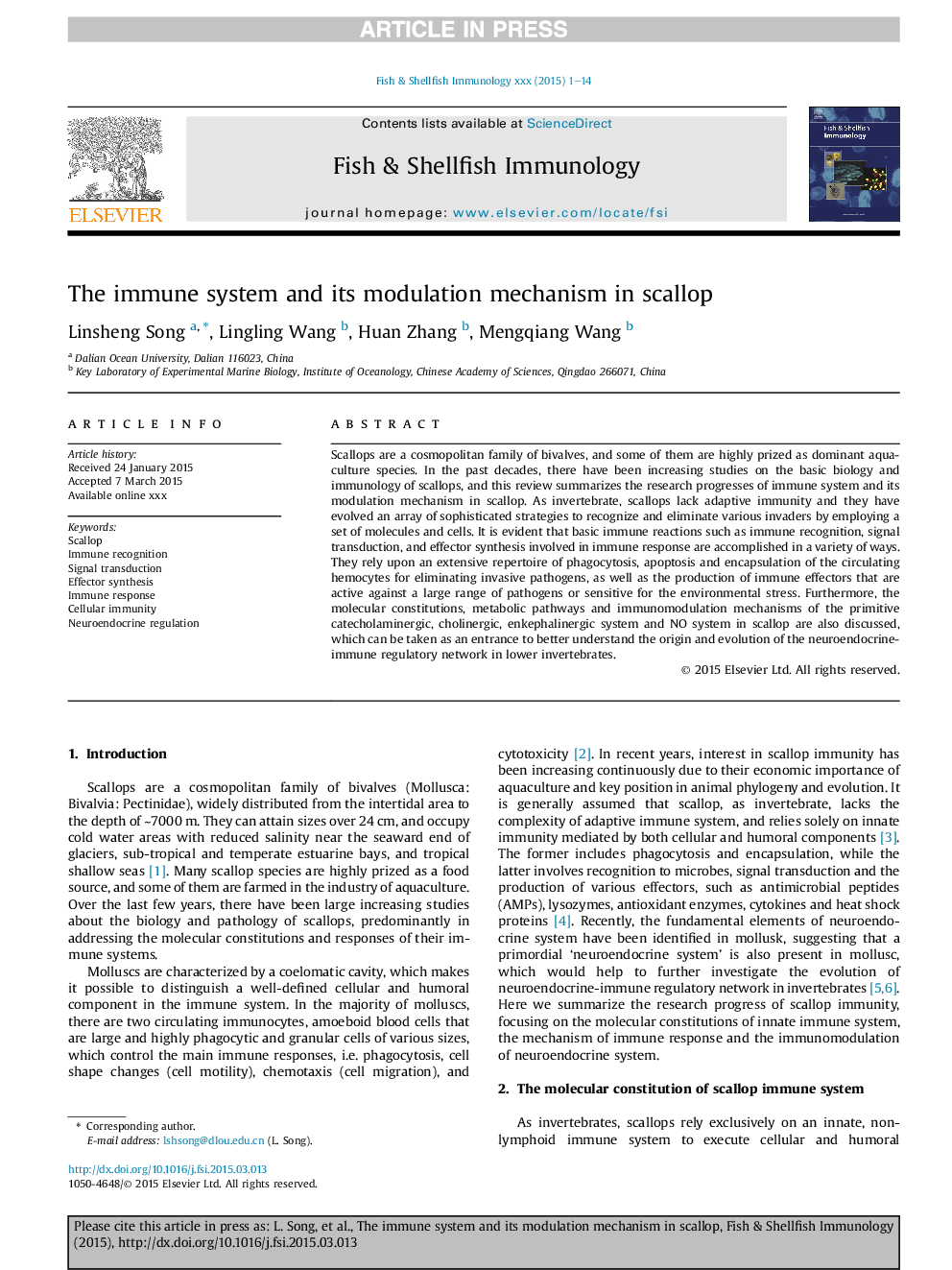| Article ID | Journal | Published Year | Pages | File Type |
|---|---|---|---|---|
| 10971763 | Fish & Shellfish Immunology | 2015 | 14 Pages |
Abstract
Scallops are a cosmopolitan family of bivalves, and some of them are highly prized as dominant aquaculture species. In the past decades, there have been increasing studies on the basic biology and immunology of scallops, and this review summarizes the research progresses of immune system and its modulation mechanism in scallop. As invertebrate, scallops lack adaptive immunity and they have evolved an array of sophisticated strategies to recognize and eliminate various invaders by employing a set of molecules and cells. It is evident that basic immune reactions such as immune recognition, signal transduction, and effector synthesis involved in immune response are accomplished in a variety of ways. They rely upon an extensive repertoire of phagocytosis, apoptosis and encapsulation of the circulating hemocytes for eliminating invasive pathogens, as well as the production of immune effectors that are active against a large range of pathogens or sensitive for the environmental stress. Furthermore, the molecular constitutions, metabolic pathways and immunomodulation mechanisms of the primitive catecholaminergic, cholinergic, enkephalinergic system and NO system in scallop are also discussed, which can be taken as an entrance to better understand the origin and evolution of the neuroendocrine-immune regulatory network in lower invertebrates.
Keywords
Related Topics
Life Sciences
Agricultural and Biological Sciences
Aquatic Science
Authors
Linsheng Song, Lingling Wang, Huan Zhang, Mengqiang Wang,
